Enab Baladi’s Investigations Team
Prepared by: Riham al-Assaad | Nour Dalati |Ahmad Jamal
With a serious attitude dependent on an international response, Russia took the problematic thread in the Syrian refugee’s issue; an issue that shook the pillars of governments and for which world conferences have been held. These conferences led to the holding of other ones that resulted in only the issuance of statements that called for responding to the Syrian refugee crisis, without seriously addressing the issue of repatriation that has always been linked to the political solution and security stability in Syria.
Moscow has recently noticed the presence of nearly six million Syrians outside the geographical boundaries that Russia has tightened its military and political grip on all its pillars. It announced a majorly “humanitarian” plan to repatriate 5.6 million refugees to Syria under the Russian vision of stabilizing the situation in Syria.
With that plan, Russia gave the international community a heavenly space, and perhaps an opportunity to get rid of a great burden, amid the international community’s indifference to the Russian efforts, which are being promoted as a “good initiative” from the Russian side.
Russian temptations in the hands of refugees
Since the Russian Defense Ministry announced its plan to repatriate the Syrian refugees on July 18, an international attention has clearly manifested itself towards a serious initiative, which is considered the first of its kind since the start of the wave of Syrian refugees in 2011.
Russia initiated its aforementioned plan by gathering international support when it submitted requests to 45 countries to obtain accurate data and figures on the Syrian refugees living there. It pointed out that the preliminary figures it obtained are initially consistent with the statistics of the UNHCR, the UN Refugee Agency.
76 centers and five crossings
After that, Moscow announced the establishment of 76 centers for housing, reception and distribution of refugees wishing to return to Syria, in cooperation with the Syrian regime government. The centers can accommodate more than 336,000 Syrian refugees distributed as follows: 73,000 in Rif Dimashq Governorate, 134,000 in Aleppo Governorate, 64,000 in Homs, 10,000 in Hama, 45,000 in Deir ez-Zor and 9,000 in Eastern Qalamoun.
The shelter centers are tasked with monitoring the repatriation of refugees from foreign countries to Syria, provide the necessary aid to them, then sort them out in their permanent areas of residence, and keep the homeless in the shelter centers.
Within the framework of coordination for these centers, the Russian Ministry of Defense established an office in Moscow in conjunction with its Ministry of Foreign Affairs, to coordinate the work of the shelter centers and implement the planned activities.
International spending for the Russian initiative
The mysterious and sudden Russian efforts to return Syrian refugees to their country may be overlooked by the international community, since Moscow has taken the most complicated issue in the Syrian crisis after proving to the world its ability to manage the military and political issues in Syria.
According to the Syrian journalist and oppositionist Wael al-Khalidi, Russia has been and is still taking advantage of any opportunity to promote itself and its project in Syria on the international scene, from combating terrorism to protecting the Israeli-Syrian borders, in addition to a cease-fire through the “de-escalation areas,” the formation of a committee to draft a new Syrian constitution and now through taking the refugee issue.
Al-Khalidi told Enab Baladi that Moscow is fully aware of the very high international spending on this issue. Therefore, there Russian extortion would be also very high. He added: “It is time now to manipulate the most important issues that concern the international community away from ISIS and the humanitarian tragedy in Syria. There is nothing that concerns the international community more than the Syrian refugees.”
Al-Khalidi considered that Russia’s attention will be directed to the funds allocated to supporting the Syrian refugees returning to Syria, especially at the current stage. Actually, Moscow is going through an acute economic crisis from which the Syrian file may save it, not only at the financial level, but also through obtaining international gains for unsolved political issues, by using the refugees card to pressure Europe, the Israeli security card to pressure the United States and the Iran card to put pressure on the Arabian Gulf, as he put it.
Syrian oppositionist Firas al-Khalidi, a member of Cairo Platform, believes that any efforts to return refugees and displaced Syrians to their homes are “good efforts,” especially if the Russian effort in the refugees issue carries good political aspects in terms of restoring the demographic balance to the Syrian society and stopping the systematic operation of the Iranian militias to stabilize that change.
However, he said in an interview with Enab Baladi that several matters should have been carried out before and with the Russian move. He pointed out that any Russian or international plan for the repatriation of refugees should be directly linked to the political solution, in addition to guarantees contingent on the exit of the Iranian militias and the stop of abuses committed by officers of al-Assad’s regime.
He added: “We will not be able to repatriate the refugees before the completion of a political and international peace process that revolves around these refugees and displaced people, especially since Syrians have not been driven out of their homes because of the lack of electricity and water, but because of a repressive and tyrannical regime that has been shedding their bloods.”
No reconstruction without repatriation of refugees
Many question the timing that Russia has chosen to raise this unsolved issue of the repatriation of refugees. The Russian plan coincided with Moscow’s failure to involve the world’s largest countries in its reconstruction plans in Syria; an issue that the Russian ally is still unable to deal with, as the Russian economy alone is unable to bear its burden.
International voices have risen in Russia’s face at every international forum, saying that there will not be any reconstruction in Syria without a “fair” transfer of power, or at least a political solution that would ensure stability in the region.
The Group of Seven, consisting of the United States, Canada, Japan, the United Kingdom, France, Germany and Italy, announced in April that it would not participate in the reconstruction of Syria without a “credible” political transition for the ruling regime.
German Chancellor Angela Merkel said in subsequent statements in June that her country would participate in the reconstruction once a political solution is achieved. Merkel did not specify at that time whether she was stipulating a transition of power in Syria, as is the case in the overall European statements on the reconstruction of Syria, or that it would be enough to reach a solution that would ensure stability without considering who will rule the country.
These obstacles led Moscow to beg the member states of the Commonwealth of Independent States (CIS), which includes 12 former Soviet republics, to participate in the reconstruction of Syria. However, these calls have not been implemented on the ground, considering that the economies of these countries are still growing.
According the Syrian journalist interested in the Russian affairs, Nasr al-Yousef, Russia is fully aware that the reconstruction is controversially linked to the repatriation of Syrian refugees. He pointed out that if the Syrian refugee settled in the asylum communities, there will not be an urgent need for reconstruction, considering that the hosting governments will refuse to deal with the reconstruction issue with the presence of Syrian refugees on its territories, invalidating Russia’s claims about the stability of the situation in Syria.
Al-Yousef added in an interview with Enab Baladi that Russia has long sought to secure funds for the reconstruction of Syria because it and Iran are unable to secure these funds. Thus, taking advantage of the refugees issue could open the door to Russia to obtain financial gains as well as settling issues related to its problems with the countries of the world, in exchange for relieving the international community from a great burden.
The United Nations estimates that Syria needs at least $ 300 billion to reconstruct the country’s infrastructure. However, Syrian President Bashar al-Assad says that “the reconstruction of the infrastructure costs at least $ 400 billion and requires 10 to 15 years.”
“No guarantees” … The fate of people on the regime’s wanted list is at stake
Russia talks about the upcoming return of 1.7 million refugees following the aforementioned plan. According to the data of Russian Defense Ministry, about 890,000 refugees from Lebanon, 300,000 from Turkey, 200,000 from European countries, 150,000 from Jordan, 100,000 from Iraq and 100,000 from Egypt will be brought back.
However, the extent to which this number of refugees has responded to the Russian plan raised many question marks, for the preliminary plan of Russia was unable to dispel the fears of refugees who were wanted by the Syrian regime or those who left the country for fear of compulsory service.
The president of the Syrian regime, Bashar al-Assad, who previously spoke about the “harmonious” Syrian society in the absence of 5.6 million of its members, declares now that he is welcoming the returning refugees and the Russian plan as long as it will force the countries of the world to hold talks with him after years of diplomatic rupture, amid skepticism about the credibility of that “formal” welcome.
The Syrian journalist Nasr al-Yousef stated that Russia may achieve relative success in containing the refugee crisis, for many of them are suffering from difficult life conditions in Jordan and Lebanon and wish to return to Syria as soon as they get the right chance.
He pointed out that some countries may exert pressure on refugees to return to their country, according to Russian claims that stated that the situation in Syria is moving towards stability.
The member of Cairo Platform, Firas al-Khalidi, believed that the refugees who are being prosecuted by the Syrian regime will not trust the Russian plan, which has not provided them with sufficient guarantees according to which they may turn from humanitarian refugees into political refugees.
He stated that “there are no international guarantees or aid programs set to help them survive.” He added that “with all these guarantees being missing and the presence of the Iranian terrorist militias, it is dangerous and difficult to return to Syria even for those who are forced to.”
The opposition journalist Wael al-Khalidi believed that there are two types of refugees who would stick to the Russian plan. The first is the one who had to accept returning to Syria because of the poor living conditions in the country of asylum. He pointed out that Russia will provide these refugees with “fake” guarantees that will be disregarded by Iranian militias.
According to Wael al-Khalidi, the second type includes Syrians who are not living in the neighboring countries and those who will have the chance to choose between refusal and procrastination, for they have the right to protection, not just the asylum right.
The return of refugees in the International law
| International law has declared its responsibility for regulating refugee’s matters since the beginning of the twentieth century. However, the protection of the refugee’s rights was effectively elaborated in 1951 when the United Nations General Assembly adopted an international convention on the fundamental aspects of the refugee’s life.
The 139 signatories to the Convention are bound to the protection of refugees under the text of the Convention. The United Nations High Commissioner for Refugees (UNHCR) maintains the “duty of supervision” of this process and intervenes when needed to ensure that “true” refugees are granted asylum and not forced to return to countries that put their life at risk (Article 33). However, the Convention itself does not oblige signatories to grant refugees automatic or permanent protection, and consequently a person may cease to have refugee status when the reason for granting refugee status no longer exists. Voluntary return is the preferable solution for a refugee when conditions in his country of origin grant safe return, according to the text of the Convention. |
A Russian container supporting Lebanon’s efforts to repatriate refugees
Lebanon has taken proactive steps towards repatriating Syrian refugees to their country and announced initiatives that distinguished it from international system. Lebanon has been fed up with the presence of about one million Syrian refugees on its territory, constituting one quarter of the country’s native population.
These initiatives resulted in a controversial coordination between the Lebanese public security and the Syrian regime, which caused the repatriation of four Syrian refugees to the “safe” areas in Syria.
The first batch, which included 76 refugees, was repatriated in late June, while the second one was sent a week later and included 370 Syrian refugees deployed all over the villages and towns of the western Qalamoun and al-Qusayr town in the countryside of Homs.
The third batch, carrying a larger number of refugees that amounted to one thousand, entered Syria within the convoys of the Syrian regime on July 23. The fourth batch returned on the 28th of the same month with the same number of refugees on board. They returned to their homes in Beit Jinn, in western Damascus in 35 buses.
In the same vein, the Lebanese “Hezbollah” took steps towards the repatriation of refugees from Lebanon to Syria, announcing the allocation of centers and telephone numbers for refugees who wish to return. However, this initiative was not welcomed, taking into consideration that the party itself has contributed into the displacement of the Syrian people, for it has fought alongside the Syrian regime.
Lawyer Sabah al-Hallaq stated that the repatriation mechanism shall begin with the registration of names at the Lebanese municipalities. Then, the General Security would send those names to the Syrian regime in order to check the security status of the people who wish to return and grant them approval. Finally, they will be repatriated from Lebanon to Syria through buses allocated by the Syrian regime.
Previously, the lawyer pointed out to Enab Baladi during an interview that following security studies, the Syrian regime have refused to repatriate several families to al-Zabadani city in Rif-Dimashq. The regime does not accept the return of the wanted refugees, its army dissidents or those who fought against it. Most of those who returned to Syria are the elderly people, women and children.”
These Lebanese measures were clearly reflected in the Russian plan for the repatriation of refugees, which could enable Lebanon to achieve what others have been unable to achieve for years and officially wash away the stain of “racism” and “defamation of refugees.”
Russia is garnering international support… Some states welcome it but others remain silent
Since the first day of the announcement of the Russian plan, Moscow started to garner international support following which it will be able to receive a reward that the international community would be able to pay, in exchange for getting rid of the thorny problem of Syrian refugee.
The Russian government introduced its plan for the repatriation of refugees to Syria at the Helsinki Summit on July 16, which brought together Presidents Donald Trump and Vladimir Putin. Then, Moscow sent delegations of senior Russian foreign and defense officials in a tour for Jordan, Lebanon, Germany and France, during which they tackled the countries’ joint efforts to ensure the success of the plan and the return of the refugees.
The Russian Defense Ministry also reported that teams were sent to Jordan, Lebanon and Turkey to conduct a detailed study about the issue of the return of refugees to Syrian territory.
Moscow made use of all its loyal media outlets to inform its official partners and convince them of the Russian approach in order to immediately begin the safe and voluntary return of Syrian refugees and displaced people.
Washington is cautious
Being the first country to know about the Russian plan, the US has cautiously welcomed the Russian effort. The US Secretary of State Mike Pompeo praised the Russian plan saying that “it is important for the world that these refugees would be able to return home at the right time and with a voluntary mechanism.”
“We support the return of the Syrian refugees to their homes, on condition that that their return is safe, voluntary and dignified (…) I do not believe that the situation would allow this now according to the United Nations High Commissioner for Refugees,” said the State Department spokeswoman Heather Nauert, in response to the Russian calls for a positive US attitude.”
However, the US Defense Secretary James Mattis disagreed with the previous statements of the US officials, and said that there would be no cooperation between the US military and Russian troops in Syria at the moment, both militarily and at the refugees’ level.
Lebanon is the first to welcome the plan
The Lebanese government has officially welcomed the Russian plan to repatriate Syrian refugees from Lebanon to Syria in a statement issued by Lebanese Prime Minister Saad Hariri.
In his statement, Hariri said that he had asked his Russian affairs adviser, George Shaaban, to communicate with Russian officials to find out the details of the proposals announced by Moscow.
According to the Lebanese statement, Shaaban met with the Russian Deputy Foreign Minister Mikhail Bogdanov, who briefed him on the details of the proposals on “organizing the return of refugees to the areas where they resided before the war.”
Hariri has repeatedly rejected Lebanese initiatives sponsored by Hezbollah and Lebanese Foreign Minister Gebran Bassil for the return of the Syrian refugees, but his position changed into widely welcoming the initiatives as the Russian initiative began.
The Lebanese government’s cooperation with Russia on the issue of the Syrian refugees in Lebanon, whose number amounted to one million refugees and who caused an “economic burden” to the Lebanese government, is expected to continue.
Jordan breathes a sigh of relief
In turn, Jordan welcomed the Russian plan on condition that the return is “within UN control.” The Jordanian Foreign Minister Ayman Safadi said that “the issue of the return of refugees is voluntary and we will not force anyone to return.”
The minister added that Jordan respects the legal obligations and human rights, and noted that he is discussing with his partners to create an environment that allows the voluntary return of Syrian refugees to their country.
Jordan hosts about 650,000 Syrian refugees registered with the United Nations, while the Jordanian government estimates that the number of those who have come to the country at about 1.3 million since 2011.
Jordan has always appealed to the international community to assume its responsibilities with regard to the Syrian refugees on Jordanian territories, but the biggest pressure on the neighboring country was the waves of displacement from Daraa Governorate last month due to military operations, when it declared that it could no longer receive more refugees.
Egypt too has a position
Despite being the country least affected by the Syrian refugees’ crisis, Egypt has expressed its willingness to join the Russian plan for the repatriation of the Syrians.
The head of the National Defense Management Centre in Russia, Mikhail Mezentsev, stated that Egypt welcomed the Russian plan and said that Egypt had proposed to join the humanitarian process for the repatriation of Syrian refugees, but no official statement has yet been issued by the Egyptian government.
The estimated number of Syrians in Egypt is about 230,000, most of whom are living at their own expense, and are opening projects that benefited the Egyptian economy, according to official statements by the Egyptian government.
Turkey, which received the largest number of Syrian refugees, 3.5 million refugees, joined the countries that remained silent about the Russian plan. Ankara is monitoring the consequences of those efforts with anticipation, while there is talk that the plan will be the focus of Russian-Turkish cooperation in the Syrian file.
Pressure or guarantees?
A quick international response to the Russian plan
The Russian accelerated moves in trying to end several files for the benefit of the regime in Syria has accelerated international and UN response to these moves, which was directly reflected on the issue of refugees and Russian moves to control the file of repatriating the Syrian refugees.
The United Nations High Commissioner for refugees (UNHCR) launched the first support for the Russian plan. It announced in a statement published on its official website on Friday, July 20, its willingness to participate in discussions with the Syrian regime and Russia on the issue of the return of refugees.
The UNHCR’s response came two days after the Russian Defense Ministry announced the establishment of shelters, reception and distribution centers for refugees who wish to return to Syria, in cooperation with the Syrian regime government.
The UNHCR has stipulated commitment to international standards during the implementation of the Russian-Syrian plan, and stressed that Syrian refugees would not be pressured to return before the availability of “safe” and “decent life” conditions.
What has changed?
The “positive” reaction of the Commissioner has left many questions about the reason for this rush to facilitate the Russian plan and contribute to its implementation, especially since the Commissioner had previously expressed reservations about the return of Syrian refugees from Lebanon.
Lebanon has taken several measures recently in the framework of “facilitating” the return of the Syrians to “safe areas,” according to the regime’s official version, in reference to the areas it has controlled since the beginning of this year.
These actions were met by other “countermeasures” from the UNHCR, through questionnaires addressed to the Syrians in Lebanon, which raised awareness about the danger of returning to Syria.
However, after the Russian announcement, the Commissioner’s position has changed radically, which the Syrian Legal Development Program (SLDP) director, Ibrahim Alabi, attributed to “possible pressures” on the UNHCR.
In an interview with Enab Baladi, Alabi pointed to the possibility of the existence of “lobbies of pressure” on the United Nations to support the Russian plan, but he stressed that there is nothing to force the United Nations to violate its laws, especially if such a return is not voluntary.
Duty to move
International law prohibits any international organization or state from forcibly returning refugees to their country of origin anywhere in the world if there is any kind of threat to their lives.
According to Ibrahim Alabi, the United Nations and Russia would commit a legal “crime” if they force refugees to return to an unsafe area. He added: “If the return is voluntary, this is normal and non-problematic, and it is normal for the United Nations to help implement it.”
It is assumed that any UNHCR assistance will be limited to logistics, and otherwise it can only provide “recommendations and proposals, and commits itself not to work on matters outside the scope of its work,” according to Alabi.
However, the problem remains about the concept of “safe” in the Syrian perspective. The fears of a large part of the Syrians are not limited to “bombing and destruction,” but rather to security pursuits and reprisals, which, according to Alabi, calls for action to prove that the return of a large part of Syrians is not safe.
Between the “influence of Russia” and “the confidence of refugees”…
How does the public perceive the success of the Russian plan?
There is no doubt that the success of the Russian efforts to return refugees to Syria depends on the extent of international response to the Russian plan and the price Moscow will pay in return for that. However, the Syrian public has another opinion since it linked the success of the plan to the extent of confidence of Syrian refugees in the Russian guarantor, especially since Moscow has not yet provided guarantees for the return of refugees.
Enab Baladi conducted an opinion poll via its website to know the opinion of the public about whether Russia will succeed in its endeavors. The question came as follows: “In your opinion, will Russia succeed in its efforts to bring back the Syrian refugees?”
52 percent of the 1,800 participants thought that Russia would not achieve its goals in returning the refugees to Syria. They considered that it was “not in Russia’s hands” and that Syrians would not respond to the Russian guarantor, which was involved with the Syrian regime in its crimes against its people.
In the meantime, 30 percent of them saw that Russia, which dominated the political and military files in Syria, was able to impose its influence on the issue of Syrian refugees and solving the dilemma that preoccupied the world. While Samer Samer, one of the respondents, said that Russia will succeed in managing the file of return, and wrote: “Compared to what it did in the last few years and with international complicity, unfortunately it is able to do so,” Haroon Haruh asserted: “Yes, everything is in its hands.”
However, 18 percent of the respondents could not yet determine their position on the Russian plan, and considered that it is not clear yet and that the Syrian scene fluctuated according to the interests of the major countries. The group chose to answer “I do not know.”
if you think the article contain wrong information or you have additional details Send Correction
النسخة العربية من المقال
-
Follow us :
Most viewed
- Al-Hijri escalates against Damascus: A "radical" government
- Kurdish rejection and international welcome for Syria’s constitutional declaration
- Al-Sharaa signs draft constitutional declaration
- Turkey confirms continuation of its operations in northeastern Syria
- Governor of As-Suwayda signs understanding agreement with al-Hijri: Key details unveiled











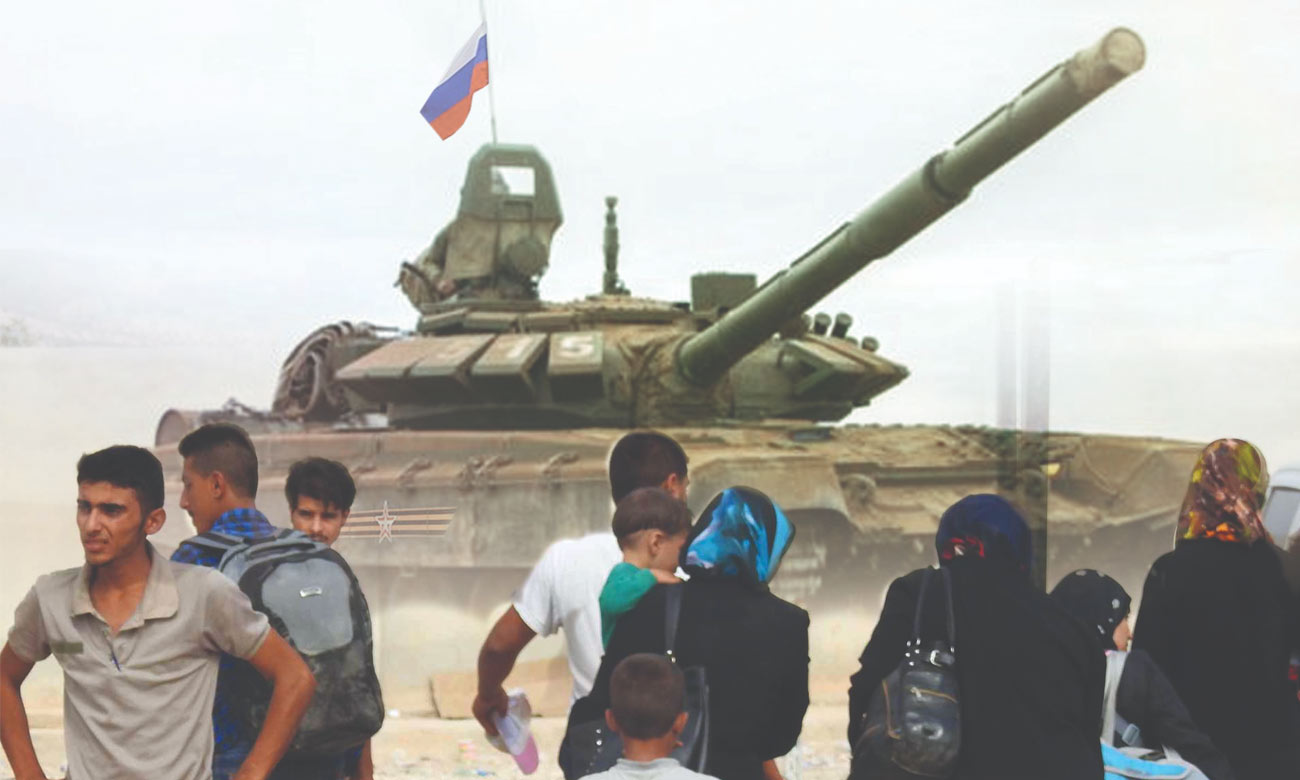
 Expressive photo of Syrian refugees and a Russian tank (edited by Enab Baladi)
Expressive photo of Syrian refugees and a Russian tank (edited by Enab Baladi)





 A
A
A
A
A
A



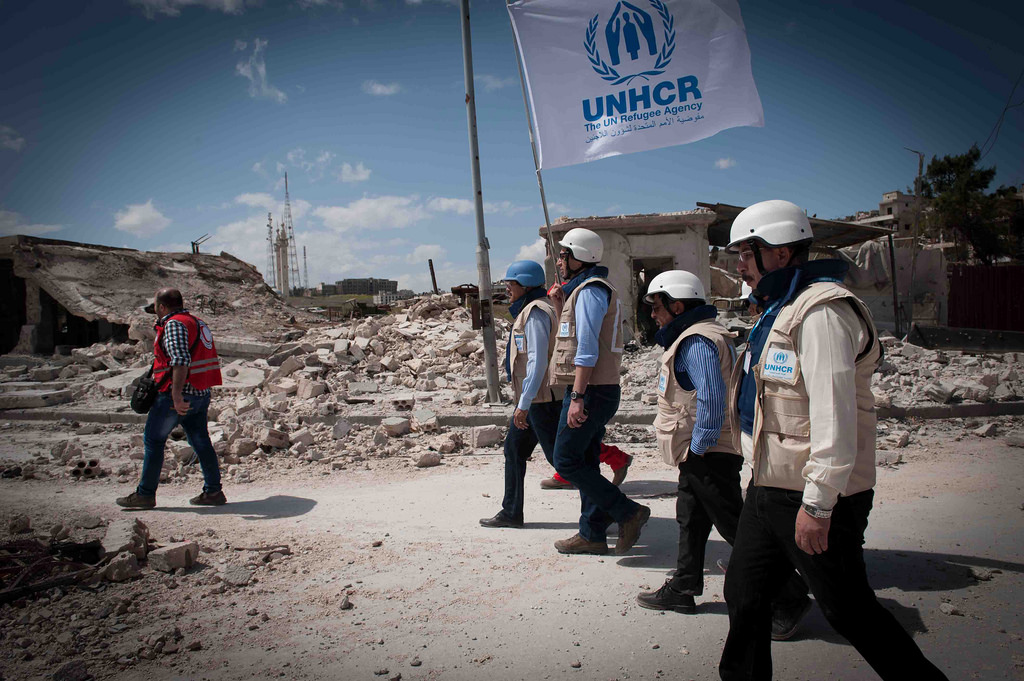



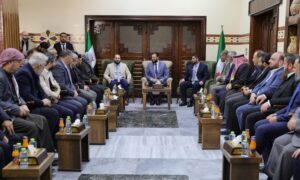
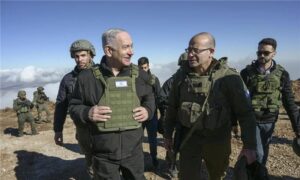

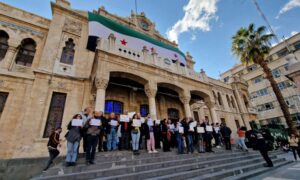
 More In-Depth
More In-Depth